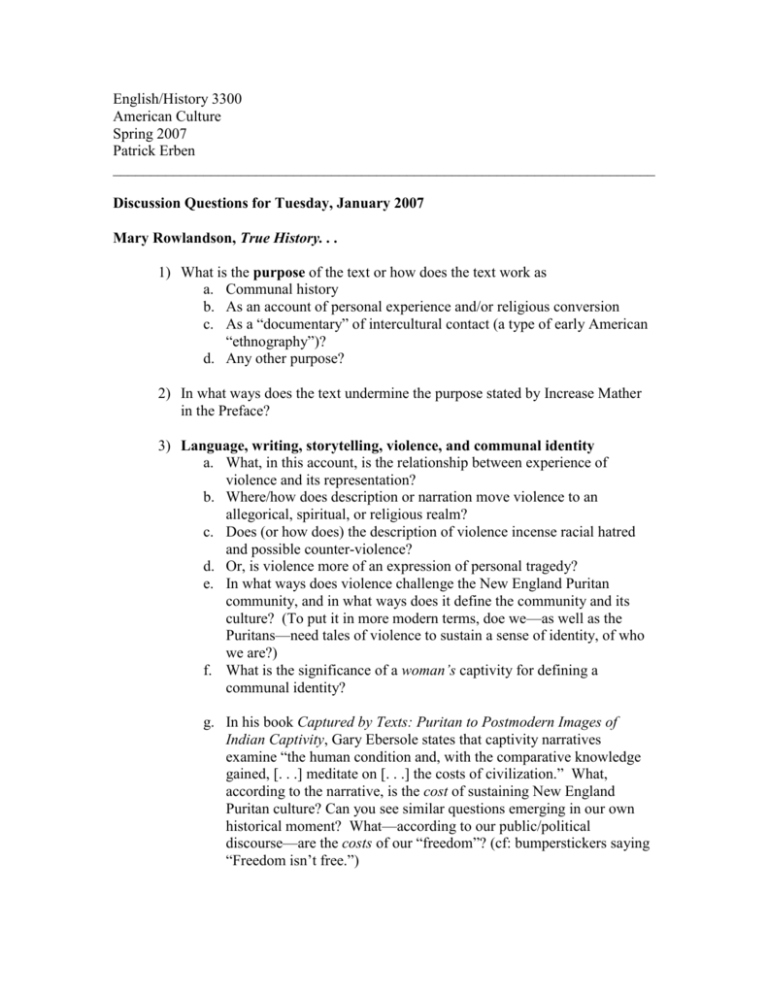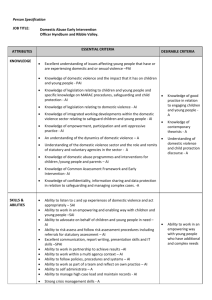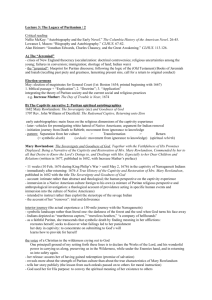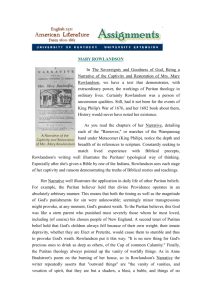Reading and discussion questions (Patrick Erben)
advertisement

English/History 3300 American Culture Spring 2007 Patrick Erben ________________________________________________________________________ Discussion Questions for Tuesday, January 2007 Mary Rowlandson, True History. . . 1) What is the purpose of the text or how does the text work as a. Communal history b. As an account of personal experience and/or religious conversion c. As a “documentary” of intercultural contact (a type of early American “ethnography”)? d. Any other purpose? 2) In what ways does the text undermine the purpose stated by Increase Mather in the Preface? 3) Language, writing, storytelling, violence, and communal identity a. What, in this account, is the relationship between experience of violence and its representation? b. Where/how does description or narration move violence to an allegorical, spiritual, or religious realm? c. Does (or how does) the description of violence incense racial hatred and possible counter-violence? d. Or, is violence more of an expression of personal tragedy? e. In what ways does violence challenge the New England Puritan community, and in what ways does it define the community and its culture? (To put it in more modern terms, doe we—as well as the Puritans—need tales of violence to sustain a sense of identity, of who we are?) f. What is the significance of a woman’s captivity for defining a communal identity? g. In his book Captured by Texts: Puritan to Postmodern Images of Indian Captivity, Gary Ebersole states that captivity narratives examine “the human condition and, with the comparative knowledge gained, [. . .] meditate on [. . .] the costs of civilization.” What, according to the narrative, is the cost of sustaining New England Puritan culture? Can you see similar questions emerging in our own historical moment? What—according to our public/political discourse—are the costs of our “freedom”? (cf: bumperstickers saying “Freedom isn’t free.”) Mary Rowlandson AND Jill Lepore, In the Name of War a) What was the meaning of King Philip’s War for New England Puritans? - A fight for survival? - clash between races? - A clash between civilization and savagery, between Christian and heathen? - a contest between chaos and order? b) How, according to Lepore, did New Englanders use language to make sense of violence during King Philip’s War? c) Please pick ONE passage from In the Name of War you would like to discuss more closely/that encapsulates her argument! h.











